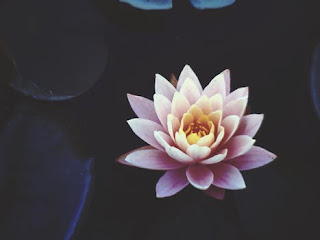The 8 Limbs of Yoga - Ahimsa
The more friendly one is, the more one stimulates friendly feelings among all in one's presence
YS II,35 Translation by TKV Desikachar
The first of the 8 limbs of yoga are the yamas and the first of the yamas is ahimsa - do no harm. Do no physical, verbal or mental harm to yourself or to others.
The idea of doing no harm might sound passive (we might think of those Jain monks sweeping the ground before them with a broom, lest they inadvertently kill a bug with their feet), but ahimsa is a dynamic, active, positive kindness. It is the idea that formed the basis of Gandhi's philosophy of non-violent protest (satyagraha), which influenced Martin Luther King and Nelson Mandela among others, and which demonstrates just how powerful, vigorous and world-changing this simple idea can be.
Ahimsa is a good first principle for your asana practice - practice with compassion and sensitivity for yourself. You don't want to sacrifice the positive feeling gained in a pose by pushing yourself so far into it that you feel pain. There is a balance to be found between effort in a pose (the sensation of having muscles work, stretch and come to life) and the pain felt when you crank yourself into a pose with the determination to get further or deeper, but without the self-love to make it work for you and how and who you are today. You make the effort to come to your mat, you commit to focus on your practice, you do your best to make each asana your best version of it, so that it looks like your asana and not someone else's and so that it feels good (challenging, but positive). That's all. That's perfect.
Ahimsa is a good first principle when approaching your inner critic. Most of us have one, don't we? What does your inner critic say to you? Would you ever dream of being as hard on anyone else as you are on yourself? Ahimsa means accepting yourself exactly as you find yourself - stiff hamstrings, weak biceps, tight hips and all. In your practice, see if you can be alert to your inner critic: notice when it sparks up it's commentary, listen to what it says to you, you will find that you can choose to ignore it. You might even be able to laugh at it. Decide to be kind to yourself instead. Remind yourself that your thoughts aren't real.
Ahimsa is the most basic principle for living well. Listen in and be kind. Give kindness to other people. My teacher told me that you can change someone's life by offering them a kind word.
Be kind to yourself and through finding compassion for yourself learn how to be kinder to others, even the people you find difficult; we're all just doing our best in any given circumstance. Even just trying to be kinder to yourself and to others brings more kindness. Don't intimidate yourself by imagining that you need to reach the highest of ideals, we can all think of someone who seems to us the quintessence of eternal sunshine and kindness (the Dalai Lama? Nelson Mandela?), but we're all human, so we all get impatient, cross, grumpy, unreasonable, or frustrated sometimes.
The great thing about yoga is that it lets us be human (with all our mistakes and weaknesses and the dark bits that we'd rather other people didn't know about), but it gives us space to reflect on how we could have a better, kinder, stronger, more generous way of living and it gives us a method for working towards that.
You can't truly be kind to others until you know how to truly be kind to yourself. You above all others know the many ways that you have fallen short, and it is so much easier to linger on those memories than on the times that you did well, helped someone out or made a positive difference. Sometimes you won't ever know how much something you said or did has helped another person. Hold yourself in positive self-regard: you are a human being doing your best to be good, helpful, compassionate, you have a lot to give and nothing is helped by that nasty internal voice that tells you otherwise.
Be kind to yourself; be kind to others. Don't jump to judge and separate yourself, seek instead to understand; treat others as you long to be treated yourself, with love and respect, regardless of whether or not they deserve or notice your kindness and regardless of what they offer you back. Your kindness ought not be dependent on what you hope or expect to receive from another. We all want to live in a kinder world, but the only part of the world that you can change is yourself.
It seems obvious why this is the first rule for living well: without the commitment to do no harm one cannot very well set out along the path of yoga, or the path of living well.

I think it is true that we are hardest on ourselves - we would not judge others so harshly, so why do we do it to ourselves?! V.
ReplyDeleteI think it is true that we are hardest on ourselves - we would not judge others so harshly, so why do we do it to ourselves?! V.
ReplyDeleteI think we judge ourselves much more harshly than someone else (in the same circumstances) - why is that?! Vanessa.
ReplyDelete